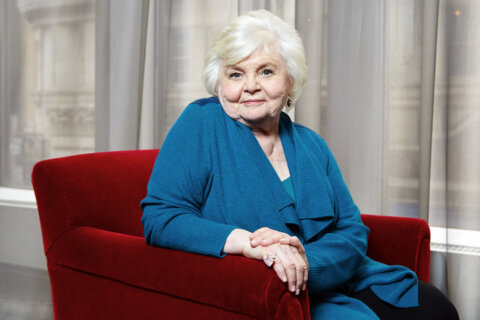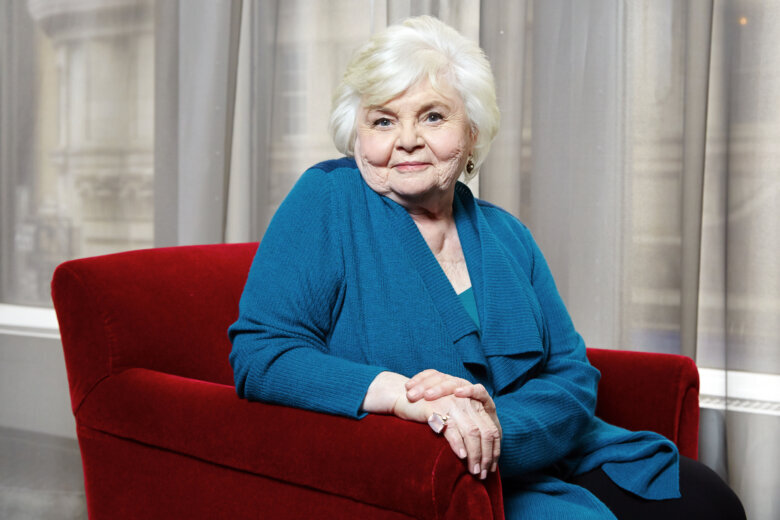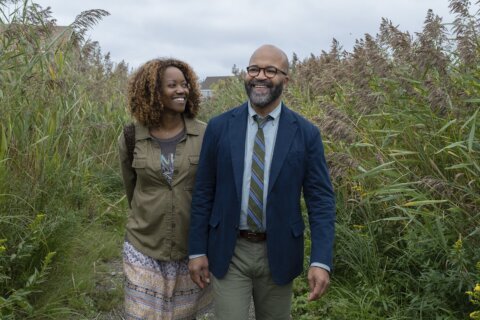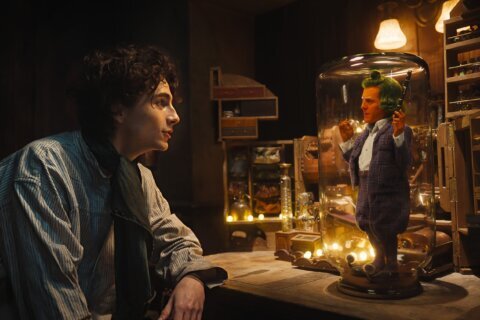
There are a lot of bad comedies about, and supposedly for, senior citizens. It’s especially depressing because the worst offenders, the ones that don’t just feel cheap and lazy but exploitative too, often feature our finest actors. They can take on the air of an unintentional horror film – and not the fun kind.
“Thelma,” starring June Squibb, is not one of those.
In her first lead film role, she plays a 90-something who gets scammed out of $10,000 and goes on a mission to get it back. Revenge stories aren’t often (or ever, really) described as sweet, but that’s the magic of “Thelma,” the feature debut of writer-director Josh Margolin that opens in theaters this week. It is charming, genuinely funny and a breeze to watch.
Perhaps it works so well on a fundamental level because Margolin wrote it with his own grandmother (also named Thelma) in mind. Though there is something inherently silly and goofy about the idea of a grandmother on a “Mission: Impossible”-style journey, “Thelma” transcends its on-paper limitations and becomes something wholly unexpected. Kind of like its main character. This isn’t not just an idea of an old person slotted into a high concept gag. It’s specific and at least somewhat realistic. The scooter she and the late Richard Roundtree (as her friend Ben) ride might be slower than Tom Cruise on foot, but the energy is high and infectious.
Squibb is absolutely wonderful at the center of the film, with impeccable comedic timing and full command of her character. Thelma is living alone at 93. She lost her husband a few years prior. Lots of her friends are gone already. But she doesn’t yet see herself in an assisted living situation, or even wearing a life monitor in case she falls. “If I fall I’m toast,” she deadpans. “That’s why I don’t fall.”
And she’s managing pretty well. Her doting 20-something grandson Daniel (Fred Hechinger of the first season of “The White Lotus”) visits often to help with the computer and just hang out. When he’s gone, she fills her days with all her tasks: Sorting pills, doing her stationary bike exercises, watching YouTube videos, attempting to comment, attempting to backspace and revise typos and accidentally posting blurry photos of nothing to her Instagram stories.
That is until she gets a panicked phone call from someone claiming to be her grandson. He was in an accident, he says, and she needs to send $10,000 in cash to bail him out. By the time the family starts answering the phone, the money is in the mail, and the police are telling them there’s nothing that can be done. Her family, including Daniel’s mom Gail (Parker Posey) and dad (Clark Gregg), basically wash their hands of it. But Thelma has nothing but time, and she wants to do something about it.
Margolin’s film was made independently. It debuted earlier this year at the Sundance Film Festival and was picked up for a theatrical release. But he had his team have made it look and feel commercial and buttoned up with a fun ’60s-inspired score by Nick Chuba.
Things really come to life when Roundtree (terrific, in his last role) enters the picture as her reluctant accomplice on their trip from the Westside of Los Angeles to Van Nuys, in the San Fernando Valley. She doesn’t drive and needs his refurbed scooter that he’s been going on about — but he’s not about to let her take it on her own.
They have a great rapport — an inspired pairing. The Posey/Gregg/Hechinger trio isn’t too shabby either spouting comedic banter that makes them instantly believable as a family unit. One standout sequence involves one of those dreaded Waze-directed Los Angeles left turns across a busy four lane throughway.
But this is ultimately Squibb’s show and she delivers, like she always does. She should have been leading pictures the whole time and finally did something about it.
“Thelma,” a Magnolia Pictures release in theaters Friday, is rated PG-13 by the Motion Picture Association for “strong language.” Running time: 97 minutes. Three and a half stars out of four.
Copyright © 2025 The Associated Press. All rights reserved. This material may not be published, broadcast, written or redistributed.










